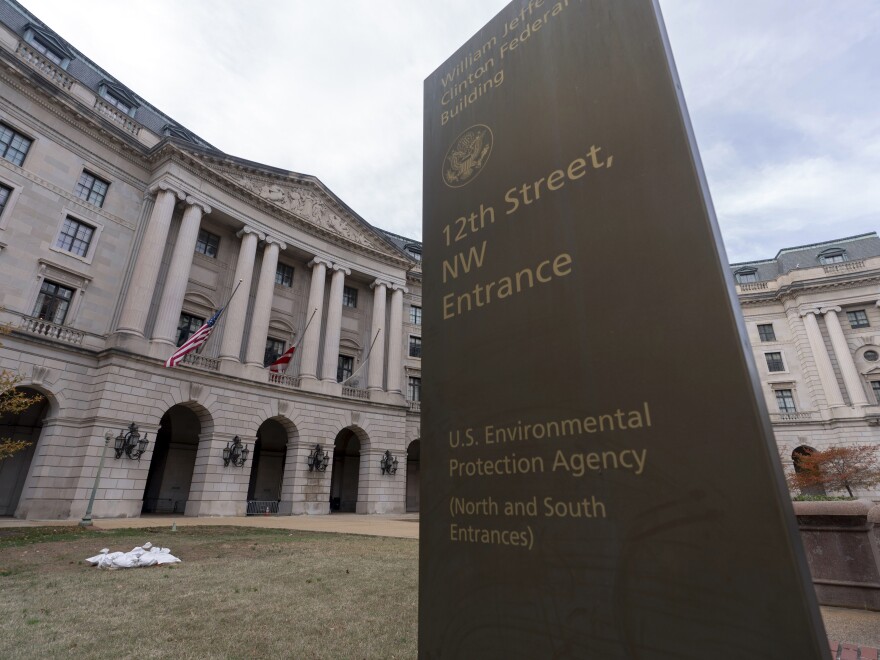A 2009 Environmental Protection Agency conclusion that serves as the foundation for many federal initiatives to combat climate change is one that the Trump administration seeks to reverse.
The government’s “endangerment finding,” which holds that pollutants like carbon dioxide and methane from burning fossil fuels can be regulated under the Clean Air Act, would be overturned by a plan drafted by the EPA. The conclusion has long been the cornerstone of numerous laws and regulations aimed at combating climate change. The White House Office of Management and Budget is presently reviewing EPA’s petition to withdraw the finding.
Climate activists, environmentalists, and others are already preparing for what may be a fundamental change in approach from attempting to solve the issue of a warmer climate. Additionally, the initiative is being hailed by the Trump administration as a possible economic victory.
EPA Administrator Lee Zeldin declared, “Today is the greatest day of deregulation our nation has seen,” when he announced the proposal in March. “We are driving a dagger straight into the heart of the climate change religion to drive down cost of living for American families, unleash American energy, bring auto jobs back to the U.S. and more.”
The administration’s initiative follows the hottest year on record for humans, wildfires caused by climate change that damaged thousands of houses in Los Angeles, and warmer ocean temperatures that increased Hurricane Helene’s strength and likelihood of causing harm inland.
Courts could yet reverse the action. The ruling, however, would accelerate President Trump’s efforts to halt former President Biden’s ambitious climate agenda and make it more challenging for succeeding administrations to reduce the amount of greenhouse gas pollution created by human activity that is warming the world.
Repealing a cornerstone of U.S. climate action
Trump signed an executive order on the first day of his second term, requesting that the administrator of the EPA provide recommendations “on the legality and continuing applicability” of the EPA’s endangerment determination.
In Massachusetts v. EPA, decided in 2007, the Supreme Court ruled that the EPA must regulate emissions of carbon dioxide and other greenhouse gases in accordance with the Clean Air Act. The EPA then concluded that greenhouse gases in the atmosphere were dangerous to human health in 2009, during the Obama administration.
EPA Administrator Lisa Jackson at the time said, “This long-overdue finding cements 2009’s place in history as the year when the United States Government began seriously addressing the challenge of greenhouse gas pollution and seizing the opportunity of clean-energy reform,” when she made the announcement.
Regulations governing climate pollution from gas and coal-fired power plants, vehicle and truck emissions, and methane from the oil and gas sector are based on the endangerment finding.
According to Rachel Cleetus, policy director with the Climate and Energy Program at the Union of Concerned Scientists, “the Trump administration’s intent is clear: They want to undermine or overturn the endangerment finding so as to evade EPA’s legal responsibility to address the harms caused by climate change.” “This is simply a giveaway to the fossil fuel industry and an attempt to undo pollution standards to limit heat-trapping emissions from motor vehicles, from power plants, [and] from oil and gas operations.”
The 2009 endangerment determination has been upheld by the EPA on numerous occasions. Congress added language designating greenhouse gases as pollutants under the Clean Air Act in 2022 as part of the climate-focused Inflation Reduction Act. It is more difficult to abandon the finding because of this.
However, President Trump’s other agenda items, including lifting greenhouse emission regulations on coal and gas power plants, would be easier to achieve if the administration is successful.
The Trump administration declared in June that it will eliminate all restrictions on greenhouse gas emissions from power facilities that burn fossil fuels. The EPA contends that pollution from U.S. power plants is a minor portion of worldwide emissions and is decreasing, which is why it is recommending the adjustment. According to the government, people’s health would not be significantly impacted by removing climate pollution from these sites.
What the Trump administration is arguing now
Trump signed his executive order Unleashing American Energy and proclaimed a “national energy emergency” on January 20. These are part of the president’s larger effort to shift the federal government into a more profound embrace of fossil fuels and away from former President Joe Biden’s climate policy.
As said in his inauguration speech, Trump stated in his order that the objective is to “restore American prosperity” and that “We will drill, baby, drill.”
According to the Trump administration, the EPA used “a flawed and unorthodox way” to produce the endangerment determination under then-President Barack Obama and “did not stick to the letter of the Clean Air Act.”
The Trump administration is attempting to overturn the endangerment decision by arguing that past managers broke the law and “imposed trillions of dollars of costs on Americans.” The agency reiterates previous Republican claims that the Massachusetts v. EPA ruling from 2007 “explicitly did not hold that EPA was required to regulate these emissions from these sources.” Furthermore, the EPA contends that the constitutionality of the 2009 endangerment determination is further called into question by more recent Supreme Court rulings.
Instead, the policy is viewed by environmental groups as favoring fossil fuel companies, whom Trump courted during the campaign.
Dan Becker, director of the Center for Biological Diversity’s Safe Climate Transport Campaign, said in a statement, “By rescinding this important scientific discovery, our government is prioritizing Big Oil over good science and people’s health.” “These proposals are a giant gift to oil companies that will do real damage to people, wildlife and future generations.”
Trump said that because he will repeal environmental regulations, oil executives should raise $1 billion for his 2024 presidential campaign.
A long legal battle is ahead
The chance to overturn a decision they have long opposed is presented by those who question the scientific consensus behind climate change.
In an email to NPR, Daren Bakst, director of the Center for Energy and Environment at the Competitive Enterprise Institute, which promotes regulatory reform on a range of policy issues, stated, “Since the 2009 endangerment finding, the EPA has been trying to regulate greenhouse gases and as a result trying to control large portions of the economy.” He notably cites regulations that restrict climate pollution from vehicles and trucks as well as power plants.
Bakst used the phrase “speculative at best” to describe the possible consequences in the 2009 endangerment finding, echoing a common conservative claim that “Even if the United States eliminated all of its greenhouse gas emissions, it would have little to no measurable effect on global temperatures.”
As the biggest emitter of man-made climate pollution in history, the United States has committed to supporting international efforts to control warming and cut emissions under the Paris Climate Agreement. A instruction to have the United States get out of the agreement has been signed by Trump.
According to Bakst, the EPA’s decision to declare the 2009 endangerment finding no longer applies “would preclude future greenhouse gas regulations.” And he adds that “it should be easy to repeal existing rules that are predicated on the 2009 finding.”
However, years may still pass before it happens. The Trump administration must first navigate regulation procedures, a public comment period, and legal obstacles.
Copyright 2025 NPR






